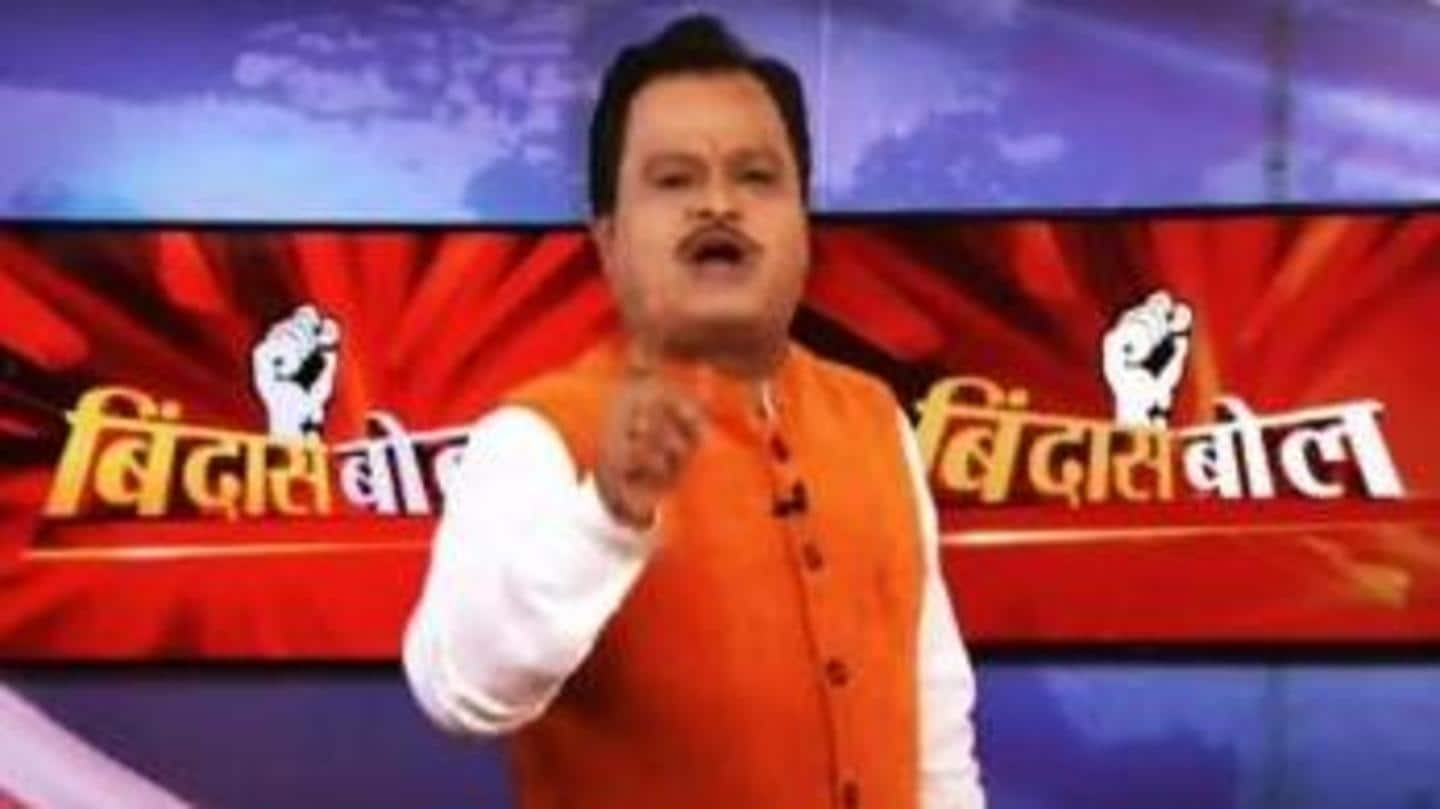
Supreme Court puts stop on Sudarshan TV's 'insidious' #UPSCJihad show
What's the story
The Supreme Court on Tuesday restrained a private television channel from airing the remaining episodes of a show on Muslims "infiltrating" the central government's civil services.
The controversial show titled 'Bindas Bol' was being aired by Sudarshan TV and it was aimed at "exposing" the "infiltration of Muslims in Indian bureaucracy."
The show was deemed "insidious" and "rabid" by the apex court.
Court
Sudarshan TV restrained from airing show's remaining 7 episodes
A three-judge SC bench headed by Justice DY Chandrachud restrained Sudarshan TV from airing the remaining seven of the total nine 'Bindas Bol' episodes.
"You cannot target one community and brand them in a particular manner," the court said, according to NDTV.
Justice KM Joseph suggested the shareholding pattern of media companies should be made public and their revenue models should be looked into.
Quote
'Show's objective to vilify Muslim community'
Calling the show "rabid," the bench said, "It appears the objective of the program is to vilify the Muslim community and make it responsible for an insidious attempt to infiltrate the civil services."
Justice Chandrachud said, "How insidious is this? Such insidious charges put a question mark on UPSC exams, cast aspersion on UPSC. Such allegations without factual basis, how can this be allowed?"
Quote
'Sudarshan TV is doing disservice to India'
Justice Chandrachud said, "Reputations can be damaged; image can be tarnished. How to control this? The state cannot do this." He told Sudarshan TV's lawyer Shyam Diwan, "Your client is doing a disservice to the nation," asking Sudarshan TV to exercise freedom with caution.
Media
Electronic media all about TRPs, says court
The court also criticized electronic media, noting its power to target a community, damage reputations, or tarnish someone's image is immense.
One of the judges said electronic media is "all about TRPs," which triggers sensationalism that "masquerades as a form of right."
Justice Joseph said the media "can't fall foul of standards they prescribe." Journalistic freedom "is not absolute," he added.
Information
Court suggests panel should define standards for electronic media
The bench suggested a panel should define the standards for electronic media. When the court was told that regulations are in place, Justice Chandrachud said, "Really? If things would've been so hunky-dory then we wouldn't have to see what we see on TV every day."
Quote
'In criminal investigations, media often focuses on one part'
Justice Chandrachud said, "When journalists operate, they need to work around right to fair comment. In criminal investigations, the media often focuses on one part of the investigation."
He said, "Now an anchor is targeting one community. To say we're a democracy we need to have certain standards in place," adding the "best within the nation" should suggest measures to debate and ascertain standards.
Centre's response
Disastrous for any democracy to control the press: Centre
Meanwhile, appearing for the Centre, Solicitor General Tushar Mehta said a journalist's freedom is supreme. "It would be disastrous for any democracy to control the press."
He said, "Your lordships must have seen those programs where 'Hindu Terror' was highlighted."
He added that there was a "parallel media," where a journalist with a laptop can garner lakhs of viewers.